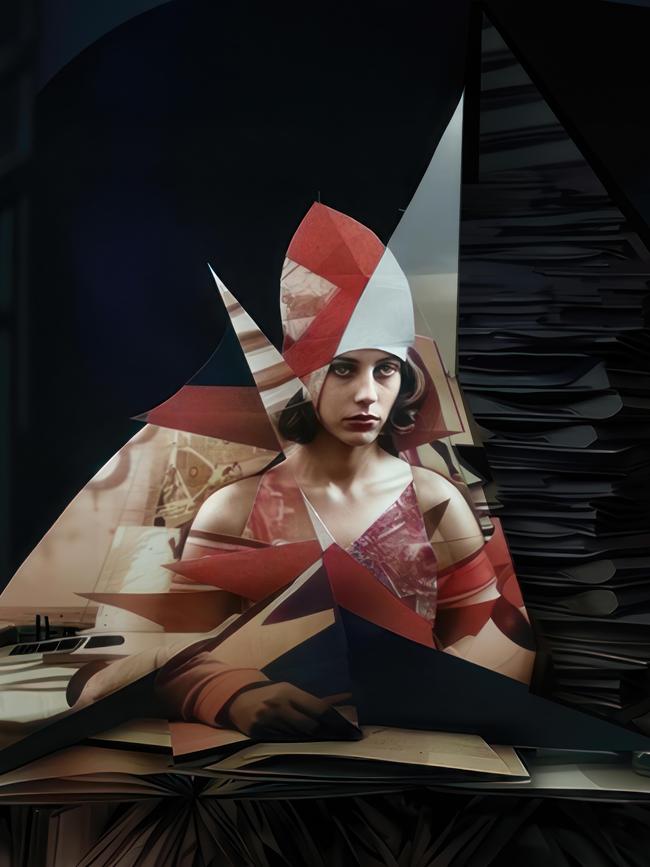Each day, it seems, the Singularity – that point long forecast by the visionaries of Silicon Valley, at which technological growth “becomes uncontrollable and irreversible, resulting in unforeseeable changes to human civilisation” – hoves closer into view.
Artificial Intelligence has emerged as the primary agent of this acceleration, especially since models such as ChatGPT have, in recent months, wrapped AI in a structure that appears to converse in a human-like way.
Boosters of AI argue that the large language models, or LLM’s, on which the technology is built have entered a runaway phase, with each fresh iteration coming more swiftly, resulting in an explosion of “intelligence” that will, in a matter of time, achieve a kind of digital apotheosis – a “superintelligence” that exceeds, absolutely, that of humankind.
You don’t have to share the ecstatic certitude of AI’s prophets to feel that something is going on. Those of us who currently use Google Bard to compose doggerel verse may not believe that AI will cure cancer in 2024 – but nor did I think my childhood Commodore 64 would one day be replaced with a desktop Mac that could access much of the sum of human knowledge. What took four decades of evolution in personal computing to achieve may well only take four years this time around.
As someone who has built a life as a writer, publisher and critic – who staked their vocation on the enduring centrality of human creativity – AI’s quantum leaps have been disquieting, even if the noise has been stronger than the signal so far. What we do know is that the last real revolution, inaugurated by Johannes Gutenberg’s invention of the movable-type printing press, was world-changing.
Gutenberg’s press was also a Singularity, of sorts. It enmeshed the recorded corpus of human thought with the mechanical means for its reproduction. Printed books allowed an accumulation of experience (by readerly proxy) and extant knowledge to be more easily and widely transmitted than ever before.
The world we have inherited – our political compacts, our social organisation, our spiritual and philosophical dispositions, our sense of what it is to be human – was shaped by the printed book. The crucial difference between then and now, however, is that the knowledge generated and disseminated was that of real individuals. The circuit of writer and reader was a fully human one; the cross-pollination of minds that built modernity was our own, unaugmented achievement.

Which is why it came as a shock to open my inbox several weeks ago to discover an AI generated email, suggesting that I might wish to review a book that was itself written by ChatGPT. Its title: How to Win Friends and Conquer the Human Race.
The book was a lark, of course, cooked up in a matter of days by a publisher who wanted to explore the possibilities of this new technology. But the relative sophistication of the book’s arguments (defined by human prompts and only lightly edited) and the clarity of its prose (workmanlike yet not mechanical), did suggest a form of authorial presence.
If this was what AI generated content was like in its infancy, what might the future hold? Those of us who had confidently asserted that the last thing robots would come for is that privileged container of consciousness that is the book, would have to think again, and fast.
But when the most doom-filled prophecies around AI foresee humanity enslaved or extinguished, the Earth a lifeless wasteland of grey goo, what does it matter that your next airport bestseller is written by Artificial Intelligence, especially since many already sound like they were composed by machines?
Because the grander claims made for AI, whether for good or ill, may well be a kind of feint. By presenting the technology in its most extreme potentialities, those who stand to profit by its adoption represent it as a step-change so significant that it is closer to magic than emergent technology. It is made to seem inevitable, a matter of evolution rather than human choice: a phenomenon to bow down to, unquestioningly.
The greater likelihood is not that AI will cure cancer or smother the world in an infinite number of paperclips, but that it will expand the current drive of what scholar Shoshana Zuboff calls “surveillance capitalism” – the commodification of personal data by corporations – into new and uncharted territory.
That territory is nothing less than the collective knowledge and cultural creations of humankind so far. Artificial Intelligence looks set on taking our patrimony as a species and selling it back to us at a mark-up.
Think of AI as software that finds patterns in raw data and then makes increasingly well-informed predictions using them when asked to perform tasks. It is a phenomenon not unlike the old calculation about infinite monkeys on infinite typewriters: a troop, which, eventually, by sheer numerical force and an endless expanse of time, will accidentally produce the complete works of Shakespeare.

We now have the infinite number of monkeys set to work. But they are monkeys who grow more self-aware each day. They have blank verse down and possess detailed information on Tudor and Plantagenet royalty, access to every text read by the original Bard and the whole concordance of Shakespeare’s plays at their fingertips.
They may retrieve every recorded version of his body of work – whether printed or performed – from the First Folio to West Side Story, and gain access to every piece of secondary criticism, from Dr Johnson to Stephen Greenblatt, stored online. No theatre director or scholar has ever had such expansive, detailed knowledge at their command.
Now picture the monkeys leaving their typewriters behind. They have become a disembodied host of data points, arranging themselves in ever more complex algorithmic models, or “neural networks”, ready to receive any request.
Just how many human lifetimes worth of thought and creativity are set to be exploited by these networks is impossible to quantify – though what is clear is that centuries of cultural dynamism and labour will increasingly be deployed to generate texts and artworks that seem set to dethrone even our singular geniuses. The monkeys are poised to put Shakespeare & Co. out of work, with their ringmasters profiting mightily from doing so.
What portion, then, is left to we humans. Some optimists might say that while ever such Artificial Intelligence is directed by human prompts, a new kind of creativity can be harnessed: that new artforms based on human-AI interaction will be born.
Techno-futurists on the left, meanwhile, have argued that if AI algorithms are held in a kind of digital Commons, then advances in AI and robotics will free us from the drudgery of those dull, repetitive tasks that make up the most part of human labour. With the bullshit jobs gone, they argue, we will revel in time for higher-order creativity. Let the machines run the daily round, humans can devote themselves to poetry!
And some on the right counter that the canon of “great books” on which our Humanist inheritance is based form a kind of sublime bulwark against AI’s inevitably second-order efforts.

All these positions get it half right. While some argue that AI’s algorithms will soon achieve “self-supervised learning” (absorbing data much the way the human brain does and developing at speed, leaving human agency largely sidelined), more recently it has become clear that, without human-generated material to feed into the models, AI degrades over time. Like a cassette taped over too many times, quality is lost.
Perhaps the least-remarked upon aspect of AI’s emergence has been the rise of low-paid “data-wallahs”, mainly based in the developing world, who spend their days tagging images or text to keep AI models fresh with human input. Their position is one of subservience to the technology, not as co-creative peers.
Likewise, those who dream of a post-work society of leisure and creative expression brought about by what has been dubbed “fully automated luxury Communism”, must grapple with the knowledge that those algorithms are currently being developed by some of the richest and most powerful companies in the world. They are unlikely to hand them over, free of charge, to the rest of us.
Though my sympathies lie with the traditionalists’ claims, that, in artistic endeavour, there are ways of seeing and reflecting the world that demand human embodiment to be successful – think of Tolstoy’s late novella The Death of Ivan Ilyich, whose eponymous character faces the end of life in a manner that only a creator with a shared sense of mortality could imagine – they rely on literature and art occupying some special region, untouched by the vagaries of the neoliberal moment.
These conservatives tend to be enthusiastic in their endorsement of the profit-making potential of new technologies but fail to join the dots where such development threatens to undermine their nostalgic exceptions. They may read Virgil’s Georgics and decry the decline of traditional agricultural communities. Yet they have no problem, in principle, with fleets of self-driving tractors and remote digital surveillance of livestock health.

One thing we can say with confidence about AI: it is technology with no real sense of the value of those things from which it is built. And the technology titans who are frantically racing to corner the market in AI seem broadly hostile to books. In fact, they are generally nonplussed by the virtue of traditional means of cultural transmission.
Marc Andreessen, billionaire co-founder of Netscape and one of the original funders of OpenAI, recently suggested at a conference that AI art was already “objectively” better than that made by humans. His presumption was that the future would require the services of only our very best human creatives. The apex predators of an aesthetic field would survive; AI would do the rest.
But human culture doesn’t work like that. The “great” artists and writers of the past are not fixed in time, nor do they emerge fully formed. They are closer to constellations of stars which glow and dim in significance according to our current situation.
Who could have imagined that the once-unknown poet and printmaker William Blake would emerge as a giant of the Romantic movement, or that a forgotten West Indian novelist named Jean Rhys would found the postcolonial novel. They only came into prominence belatedly, as we ourselves changed and learned to see their achievements with new clarity: a process which required the considered support of critics, the recuperative efforts of publishers, and, most importantly, the broad and sustained enthusiasm of the reading public.
Human culture is not a set of data points; it is an ecosystem in which every part is involved in dynamic interaction with the others. Remove bees from an orchard and pollination ceases. Subtract plankton from the oceans and the undersea food system implodes. Andreessen and their ilk think that leaving a few wolves in an otherwise barren Yellowstone National Park would do the trick. That is not culture; it is a zoo for endangered species.
In other words, those behind the algorithms set to transform our world do not share our recalcitrant veneration for the best works of the past, or a sense that the best of the works of the future will grow out of our human grappling with such an inheritance. They envisage a future in which scientism – the dogmatic application of scientific ideas and methods to all fields of human activity – is allied with an unthinking adherence to the market’s invisible hand.
Theirs is an ideology so absolute that it is akin to religion – though, as we are learning, the algorithms they create are designed not from some place of sinless objectivity but are shot through with the notions of those who have trained them. AI has shown itself, on occasion, to be as capable of prejudice as any human coder. Should, then, such algorithms grow independently of our intentions in a manner inimical to human flourishing, we will lack the means to correct them.
That means of correction is called human culture and the best of its productions have been preserved between paper and board. As one of my publishing colleagues asserted when we recently debated, as a firm, the merits of AI: “All we are is our intellectual property.”
As goes publishing, so goes journalism, education, the arts and culture at large. We are set to hand over the IP of humankind to a series of corporations for purposes of profit-making. A generous bequest, indeed, given it is all we are.
Geordie Williamson has been chief literary critic of The Australian since 2008.



More Coverage
Add your comment to this story
To join the conversation, please log in. Don't have an account? Register
Join the conversation, you are commenting as Logout